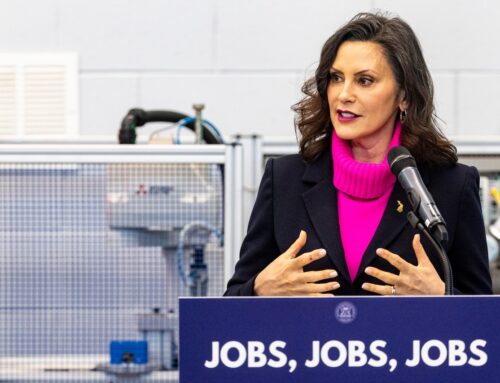Clean-energy advocates expect an industry fallout in Florida from Trump’s ‘Big, Beautiful’
July 7, 2025
The so-called “Big, Beautiful Bill” is now law, signed by President Donald Trump on Friday.
The measure pushes through an extension of Trump’s first-term tax cuts and adds new tax breaks, some that overturn clean-energy components of former President Joe Biden’s 2022 Inflation Reduction Act.
So, how will the new law affect clean-energy projects in Florida?
The law does away with tax incentives that have paid for nearly a third of the cost of installing solar panels. Advocates are concerned this could threaten the viability of nine clean-energy factories and over 10,000 jobs in Florida. It could also raise the price of buying an electric vehicle.
WUSF’s Steve Newborn talked about its implications with Maggie Shober and Stan Cross of the advocacy group Southern Alliance for Clean Energy.
The interview was conducted before the bill was signed. It has been lightly edited for clarity.
WUSF: How would the rollback of these clean-energy credits affect Florida, and particularly solar panel providers, here in the state?

Southern Alliance for Clean Energy
SHOBER: This so-called “Big, Beautiful Bill” is going to be big and bad for the solar industry. It is changing the calculus for electric utilities that have already planned solar, which most in Florida have solar projects in the works that now will cost more.
And in a situation like we have in Florida and other parts of the country, where electric utilities are experiencing low-growth solar – even without tax credits – it’s going to be the best option to meet that load growth.
We just can’t get gas turbines in time. Florida does not produce gas and has somewhat limited pipelines to get gas into the state. So the solar that needs to get built will cost more, and that will mean people’s electric bills will go up.
When you say the cost of solar panels, for instance, will go up, can you give me a rough estimate of how much for the average house?
SHOBER: So the tax credits for homes that wanted to put solar on their roofs were for about 30 percent of the cost. So now households will pay, you know, 100 percent of those costs instead of that, about 70 or so percent.
Is there a timeline on this bill would take effect immediately upon passage?
SHOBER: There’s a couple of different timelines for different resources. Some phase out at the end of this year. Some have provisions put into the Senate bill that they would need to start construction by the end of next year.
So there’s a little bit of flexibility for some projects, nuclear and geothermal and sort of longer lead time, projects have all the way until 2033, but for solar and wind and storage, those are nearer-term deadlines.
So if you want to put solar panels on your roof, for instance, or put up a wind turbine, do it now, right?
SHOBER: Yes, absolutely. Get on it quickly. I think the lines are already pretty long.
“What this bill does is inject a whole lot of uncertainty into the market. And if there’s one thing business does not like, it’s uncertainty.”Stan Cross, Southern Alliance for Clean Energy.
There was a report by the Solar Energy Industries Association. It said that nine clean-energy factories in Florida are at risk of closing or never opening if this bill passes. Is that what you’re seeing as well? Or do you have different numbers than that?
SHOBER: Yes, that is what we’re seeing. So in addition to tax credits that encouraged both households and businesses and utilities to install solar, there are also tax credits to encourage clean energy to manufacture here in the U.S., and so those are going away as well.
I’ve read that there are also 10,000 jobs in Florida directly tied to clean energy. What kind of numbers can you give us?
SHOBER: It kind of depends on how you define clean energy, whether that includes, you know, energy efficiency, or electrification, electric vehicles, and all those things as well. But these are pretty broad and well-established sectors here in the Southeast. So that seems low to me for Florida. So I think it’s probably much, much more than that.
How would this bill affect sales of electric vehicles?
CROSS: The bill will also impact electric vehicles by eliminating credits for purchasing new and used EVs. So you know that’s big in Florida, because Florida is now No. 1 in the Southeast for EV sales and the second biggest state in the country for EV sales. So that market is thriving, and it’s a shame to sort of try to take out some of that momentum. At the same time, the electric horse might have already left the barn in Florida.

Southern Alliance for Clean Energy
There are so many EVs on the road, and drivers are so satisfied with those electric vehicles. There’s also a hope that market momentum will persist, even despite the efforts of this bill to slow it down.
It sounds like Florida is maybe ahead of other states in terms of clean-energy projects, particularly solar. Do you believe that the inflation Reduction Act accomplished its mission of jump-starting the businesses, especially here in Florida, and maybe we don’t need the tax credits so much anymore?
CROSS: The Inflation Reduction Act set market conditions in a favorable way for the clean-energy sector, and that clean-energy sector was just getting going.
And what this bill does is inject a whole lot of uncertainty into the market. And if there’s one thing business does not like, it’s uncertainty. So the impact of this bill – it’s unknown at this point – but it could be catastrophic by removing those incentives just as the private sector was making good on their investments and job growth.
Do you believe that the state’s clean-energy industry can survive the rollback of these tax credits?
SHOBER: I think that the economy can survive. I think there’s some questions as to whether or not it will thrive. I think that one thing that we’ve seen, any sort of student of economics can talk about, is that certainty is really important when you are planning for your business, planning for your future, or when you know households are planning house projects or the like.
So I think that you know that, for better or worse, the solar industry, and renewable industry more broadly, has seen a history of tax credits come and go and shift and change. And unfortunately, you know, these are the policies that have been politically amenable, instead of what I see as really an ability to make the playing field more even.
We’re giving these incentives to the clean-energy industry, but we’re not taking away the inherent incentives of fossil fuels. And if we were to do that, then I think that the tax credits for clean energy would be less necessary.
This is the political world we live in, and this is the way that our federal government has decided to do clean- energy policy. And so I think that it is potentially catastrophic. I don’t think solar companies will all disappear overnight, but I think that we as a country – and the Southeast and Florida in particular – will be set back because of these policies. There’s absolutely no doubt about that.
“For America to lose our global energy leadership is foolish. This is the biggest gift we could ever have given to China and other countries that are already outcompeting us in many global markets.”Stan Cross, Southern Alliance for Clean Energy.
Anything else that you would all like to mention?
CROSS: The clean-energy incentives that this bill seeks to roll back were put in place to create a level playing field in the energy economy. The fossil fuel industry is arguably one of the most subsidized industries in our entire economy, and these incentives, over time, have created a robust clean-energy economy that may be durable enough to withstand these changes, but that’s the wrong question.
This is an economy that is creating jobs, that is creating a global competitive advantage for our country in an energy sector that is growing worldwide. For America to lose our global energy leadership is foolish. This is the biggest gift we could ever have given to China and other countries that are already outcompeting us in many global markets.
Search
RECENT PRESS RELEASES
Related Post



